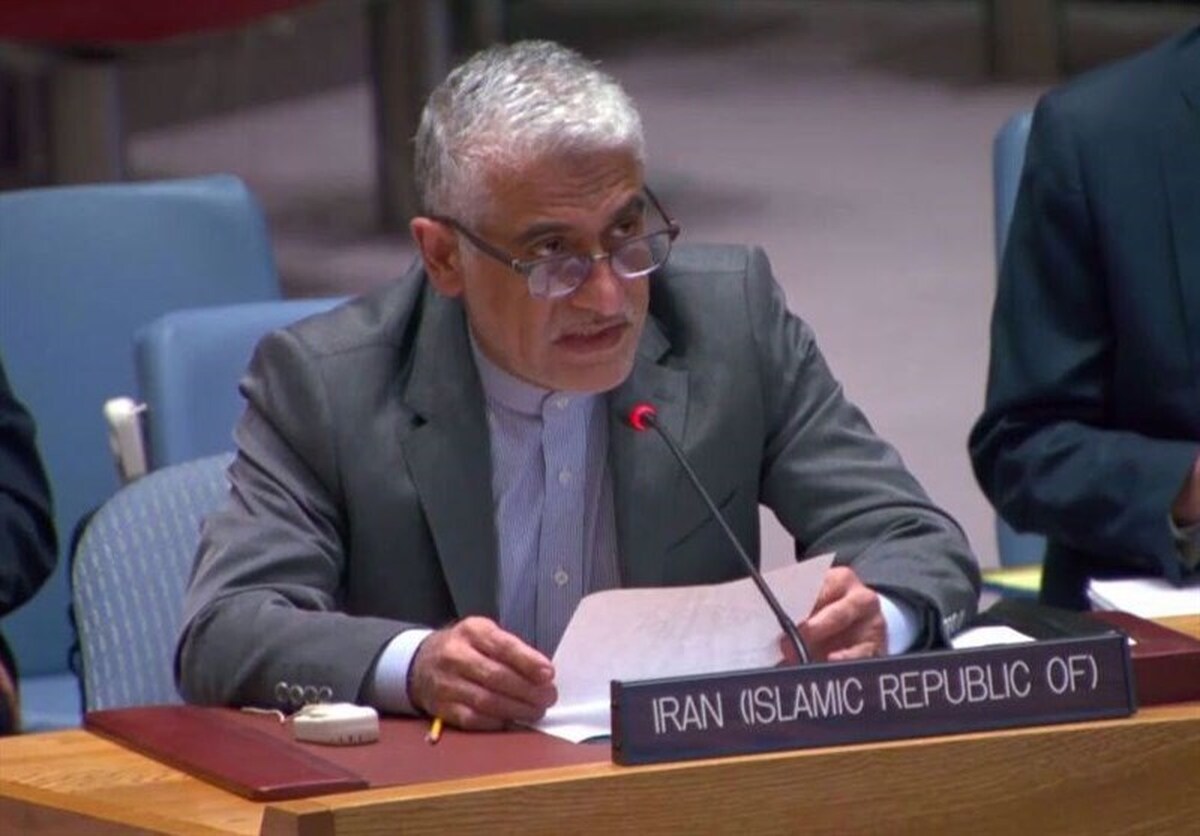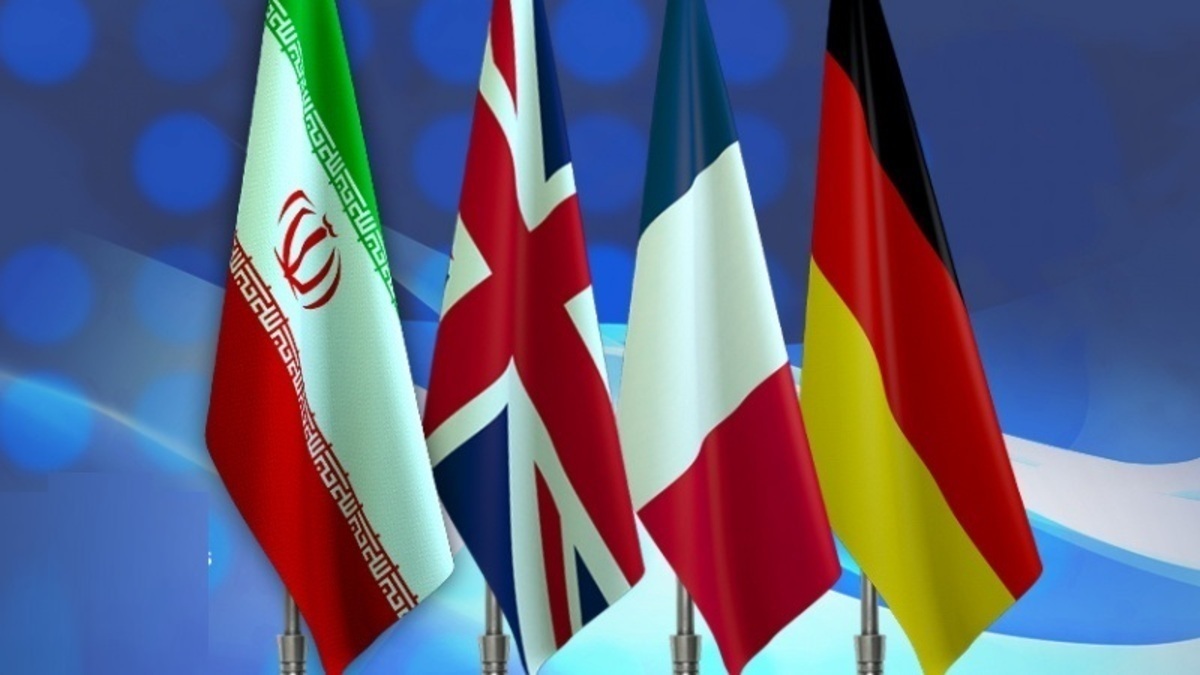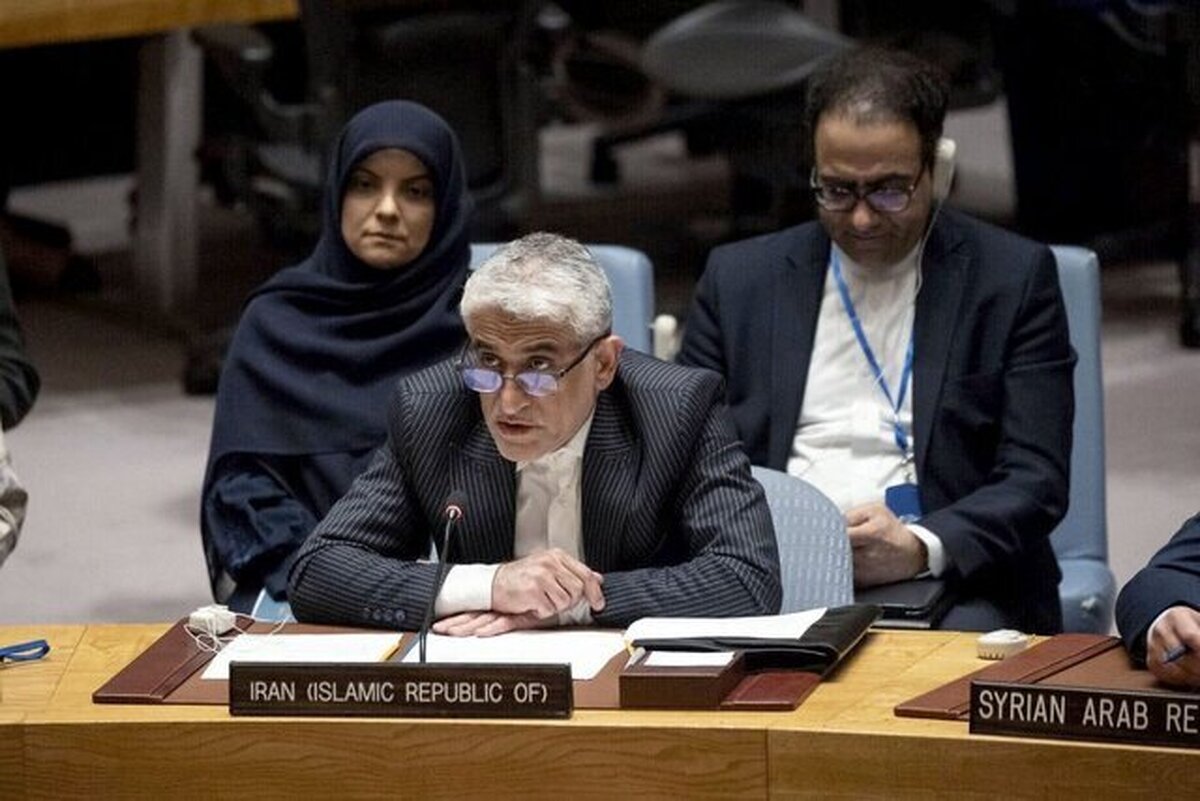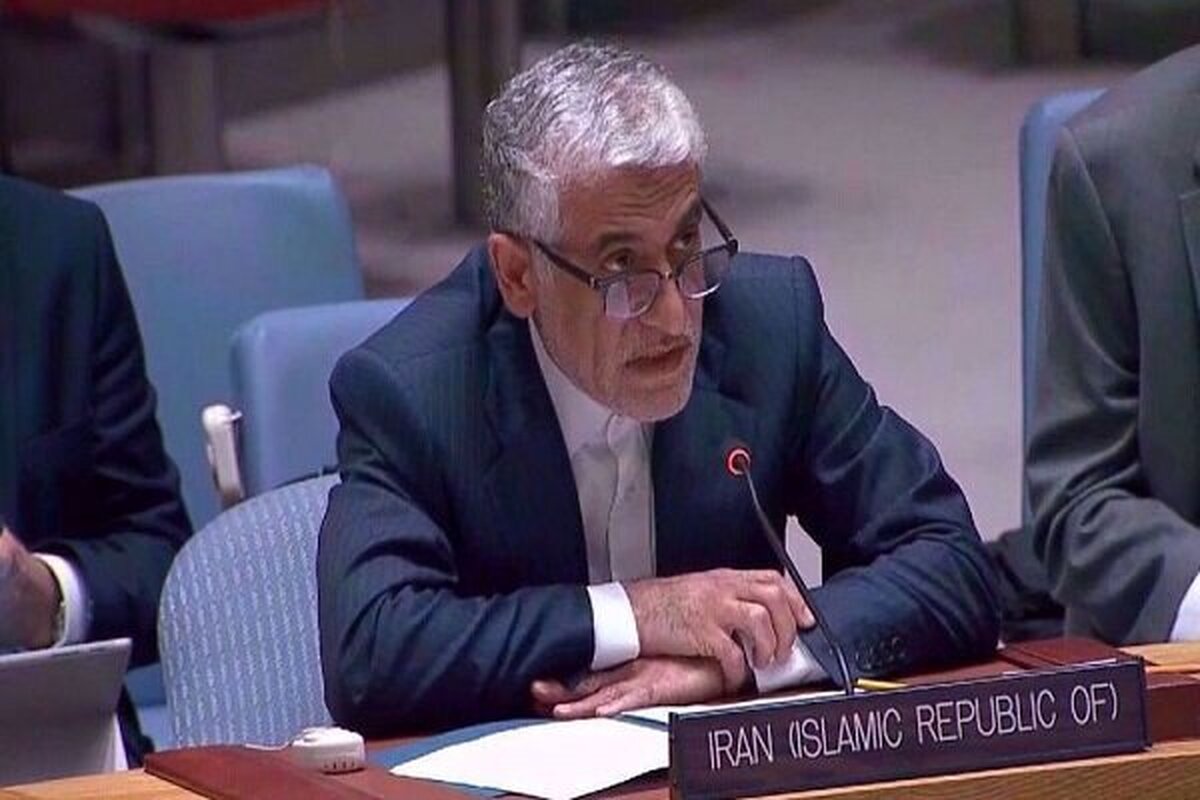
Iran warns of firm response if ‘snapback’ mechanism triggered

Iran’s Ambassador and Permanent Representative to the United Nations has warned that any threats to invoke the so-called “snapback” of sanctions against Iran are counterproductive and will provoke a firm response from Iran.
EghtesadOnline: In a letter sent to UN Secretary-General António Guterres and President of the UN Security Council Linda Thomas-Greenfield said Iran remains unwavering in its commitment to its obligations under the NPT (Nuclear Non-Proliferation Treaty), which unequivocally guarantees the inalienable right of all States Parties to develop, research, produce, and use nuclear energy for peaceful purposes, without discrimination and in full conformity with Articles I and II.
“Iran will never compromise its legitimate and inalienable rights under the Treaty,” he said, adding, “Consequently, any threats to invoke the so-called ‘snapback’ are counterproductive and will provoke a firm response from Iran. This position was explicitly conveyed by the then Iran’s President in a letter addressed to the leaders of the E3 on 8 May 2019.”
The following is the full text of the letter:
Excellency,
Upon instructions from my Government, and further to my letter dated 2 December 2024 (S/2024/874), I am writing in response to the joint letter dated 6 December 2024, from the Permanent Representatives of France, Germany, and the United Kingdom (E3) to the United Nations, addressed to the UN Secretary-General (S/2024/886). In this letter, the E3 once more disregarded their ongoing violations of their commitments, while baselessly accusing the Islamic Republic of Iran of non-compliance with its JCPOA commitments and alleged violations of UNSC Resolution 2231. In this context, I wish to draw your attention, as well as that of the Security Council members, to the following points:
The Islamic Republic of Iran categorically rejects the claims in the E3 letter regarding Iran’s alleged non-compliance with its commitments under the JCPOA. Any allegation regarding Iran’s implementation of its JCPOA commitments is fundamentally flawed when divorced from the full context of the US withdrawal. Such a claim ignores Iran’s sustained efforts to uphold the deal despite persistent provocations and violations by the US and E3/EU, rendering it arbitrary and devoid of substantive validity.
As highlighted in Iran’s letter dated 2 December 2024 (S/2023/874), the root cause of the current situation surrounding the JCPOA stems from the United States’ unilateral withdrawal in May 2018 and the subsequent failure of the E3/EU to fulfill their commitments under the JCPOA and Resolution 2231. The US, by withdrawing from the agreement in blatant violation of its commitments, not only undermined the very foundation of the JCPOA but also reimposed unlawful and crippling sanctions on Iran, in clear contravention of the agreement and UNSCR 2231. The E3, while claiming to uphold their commitments, has failed to take effective measures to mitigate the effects of these unlawful sanctions and ensure Iran’s ability to enjoy the benefits guaranteed under the agreement.
The E3’s reference to IAEA reports fails to reflect the full context and represents a misperception of Iran’s compliance. Iran’s cooperation with the IAEA has been consistent and transparent, even as external pressures such as unilateral US sanctions and the E3’s inaction that created unprecedented challenges. To date, Iran remains subject to the most rigorous verification and monitoring measures ever implemented by the Agency. Iran’s remedial measures were reversible and directly tied to the JCPOA’s principle of reciprocity. It is, therefore, disingenuous and hypocritical for the E3 to cite Iran’s “non-compliance” while ignoring their own failures to uphold their obligations under the agreement.
The E3’s invocation of the JCPOA Dispute Resolution Mechanism (DRM) by referring to their letter dated 14 January 2020 in response to Iran’s remedial measures of May 2019 onward, is irrelevant. This action, while disregarding Iran’s legitimate grievances under paragraph 36, was not considered an act of good faith but a politicized maneuver aimed at deflecting from their own non-compliance. As expressed in many communications, Iran’s decision to cease performing its commitments in response to the US’s unilateral withdrawal from the JCPOA and the re-imposition of its unlawful sanctions, was a lawful and legitimate response, according to Iran’s rights under paragraphs 26 and 36 of the JCPOA. Therefore, it is utterly illogical and unacceptable that the E3 attempts to justify their refusal to fulfill their Transition Day sanctions-lifting commitments as a response to Iran’s lawful remedial measures—measures taken only after enduring a full year of the US’s unlawful withdrawal and the E3/EU’s persistent failure to meet their own sanctions-lifting obligations.
The E3’s refusal to lift sanctions on Transition Day in October 2023 and their imposition of new sanctions in 2024 under unrelated pretexts constitute another clear violation of their commitments under the JCPOA and UNSCR 2231. The claim that these sanctions are “entirely separate” from the JCPOA is legally and factually baseless. UNSCR 2231 explicitly requires all JCPOA participants to refrain from actions that undermine the agreement’s objectives. The E3’s reliance on unilateral sanctions regimes such as Council Decision (CSFP) 2023/1532 and UK regulations is a transparent attempt to circumvent their commitments. We are particularly surprised by the E3’s interpretation of paragraph 30 of the JCPOA, which misrepresents the scope of activities covered by the lifting of sanctions. While we welcome the E3’s decision to engage more closely with the JCPOA, their interpretation regrettably misses the mark. Paragraph 30 exclusively pertains to activities directly linked to sanction-lifting obligations and offers no justification for unilateral or politically motivated measures that violate the core commitments of the agreement. The imposition of additional sanctions and the re-listing of entities such as IRISL blatantly contravene the prohibition on reinstating previously lifted sanctions under the JCPOA. Such actions not only breach JCPOA commitments but also undermine the confidence-building efforts essential for meaningful diplomatic progress. IRISL is unequivocally recognized as an entity covered by the JCPOA’s sanctions-lifting provisions, and any assertion to the contrary is both inaccurate and misleading.
The E3’s assertion that Iran “refused to seize opportunities” in 2022 is simply untrue and disregards the reality on the ground and of the negotiations. Iran engaged in the Vienna talks in good faith, showing considerable flexibility to achieve a balanced agreement. However, the unrealistic approach taken by the E3 and the US, coupled with their lack of political will, domestic political considerations, and attempts to link the negotiations to unrelated issues, ultimately prevented the successful conclusion of the talks. Therefore, blaming Iran for the failure to conclude negotiations is both inaccurate and unfair.
Iran remains unwavering in its commitment to its obligations under the NPT, which unequivocally guarantees the inalienable right of all States Parties to develop, research, produce, and use nuclear energy for peaceful purposes, without discrimination and in full conformity with Articles I and II. Iran will never compromise its legitimate and inalienable rights under the Treaty. Consequently, any threats to invoke the so-called “snapback” are counterproductive and will provoke a firm response from Iran. This position was explicitly conveyed by the then Iran’s President in a letter addressed to the leaders of the E3 on 8 May 2019.
Iran remains committed to engaging in good faith and exploring all avenues of diplomacy to address shared challenges. However, the E3 must recognize that meaningful diplomacy Permanent Mission of the Islamic Republic of Iran to the United Nations demands genuine reciprocity and respect for established commitments. We urge the E3 to abandon their ineffective and failed policy of pressure and confrontation. Instead, they should embrace diplomacy and focus on rebuilding the trust essential to resolving the current impasse. A sustainable diplomatic solution can only be achieved through mutual respect, strict adherence to international law, and full commitment to the principles of the JCPOA, a framework that has proven effective in managing an unnecessary crisis surrounding Iran’s peaceful nuclear program.
I kindly request that this letter be circulated as an official document of the Security Council.
Please accept, Excellency, the assurances of my highest consideration.




